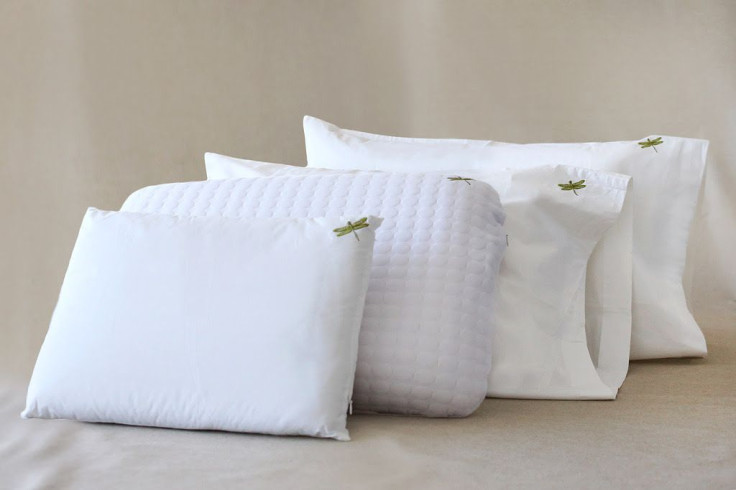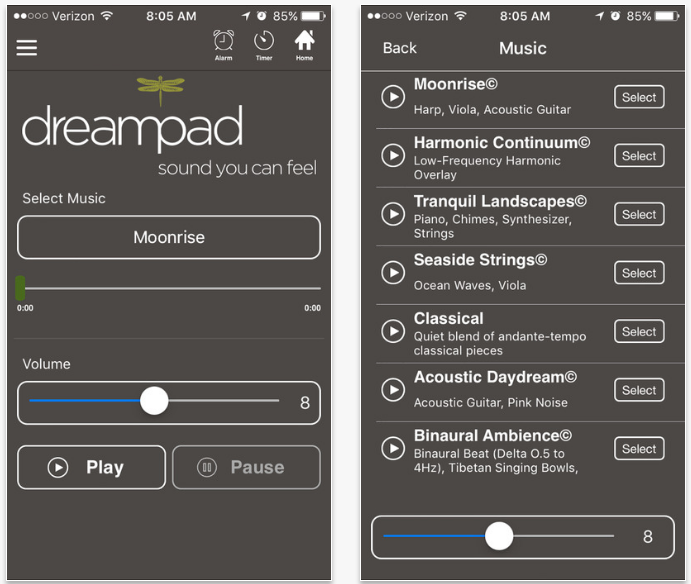Dreampad, A Pillow Designed To Help Children With Autism And Anxiety Sleep, Is Now Available For Everyone

Dreampad, a pillow which plays music through vibrations designed to help children with autism fall asleep, is now available to the public.
The Dreampad was originally developed to help children with anxiety, autism and other disorders fall asleep at night -- and by popular demand, the pillow is now available to everyone.
Before the Dreampad was developed, the product’s parent company, iLs (Integrated Listening Systems), provided a music and movement therapy program used by educators and therapists to improve brain function in those with autism, head injuries and people undergoing stroke rehab.
iLs used a headset fitted with a unique transducer technology, which had a calming effect on children with stress and anxiety. However, the children were unable to wear the headsets because of tactile sensitivity. That’s when iLs developed the Dreampad, which didn’t require a headset, and allowed children to simply lay their head on the pillow to fall asleep.
“I developed the pillow because of the sensitivity, that way they could put their head on the pillow,” iLs CEO Randall Redfield told International Business Times . “It was really developed to help children with autism and other difficulties to help them calm down, people with high levels of anxiety. They’re anxious and they can’t relax, the body and mind won’t let them fall asleep.”
A study released this month by the Open Journal of Occupational Therapy Study found the Dreampad helped children with autism relax and get rest. Researchers analyzed 15 children with autism who used the Dreampad for a two-week period. The study found all children were able to sleep better (falling asleep and staying asleep), and saw improvement in children’s daytime functioning, categorized as emotional, social and school behavior. The study also found the improved sleep of the child had a positive impact on parents and other family members.
Adult Versions of Dreampad
Parents who saw their child fall asleep with the Dreampad didn’t want to be left behind and started taking the pillow for themselves after their child went to sleep, Randfield said.
“Parents were then going in and using it themselves and writing us to create an adult version,” Redfield said. Back then the pillow was a “simple and a little pad” he added.
iLs took the parents’ request and released the Dreampad to the public after a Kickstarter campaign.
“We went back and redesigned it before releasing to the public,” said Redfield. “Now it’s extremely comfortable, you can’t tell if there’s any technology at all. Some people don’t use the music because the pillow is comfortable enough.”

How Dreampad Works
The Dreampad is a pillow that calms a person’s nervous system with music. Dreampad’s technology is based on the natural conductivity of the human body. For example, our bones are natural conductors, since every time we talk our voice’s vibrations are carried by bone to our inner ear. That’s similar to the way music from the Dreampad travels internally to your ear.
The soothing effect of the Dreampad is produced by the vibrational music that stimulates the vagus nerve, which then activates the parasympathetic nervous system (PNS). PNS is what helps us regulate stress and calms us down if we’re in a state of hyper-arousal or elevated stress.
When you can’t sleep the “mind thinks about what you should’ve done or could’ve done that day,” Redfield explained. The Dreampad “prevents you from falling into a thought cycle.”
“The Dreampad relaxes the body and mind to allow you to fall asleep,” he added.
The pillow comes with a smartphone app. Users can select in-house created songs and set timers, if they want to listen to music for an hour just to fall asleep or for the entire night, so they can stay asleep. Music is then played from the app and delivered through the pillow via a small bluetooth receiver.

You don’t have to worry about waking up the person next to you while using the Dreampad, since only you can hear the music when your head is placed on the pillow. Once you lift up your head you won’t hear music anymore.
The Dreampad is available in four versions, one for those who like memory foam support, another for feather pillow lovers, a medium feather pillow and a slim version for children or adults who prefer thinner pillows.
The pillows are a bit expensive, starting at $149 going up to $179, though there is a 30-day money back guarantee policy, in case the Dreampad doesn’t work for you.
“You’ll know right away if it works for you,” said Redfield, “Some people simply don’t like music when they go to bed.”
© Copyright IBTimes 2024. All rights reserved.





















